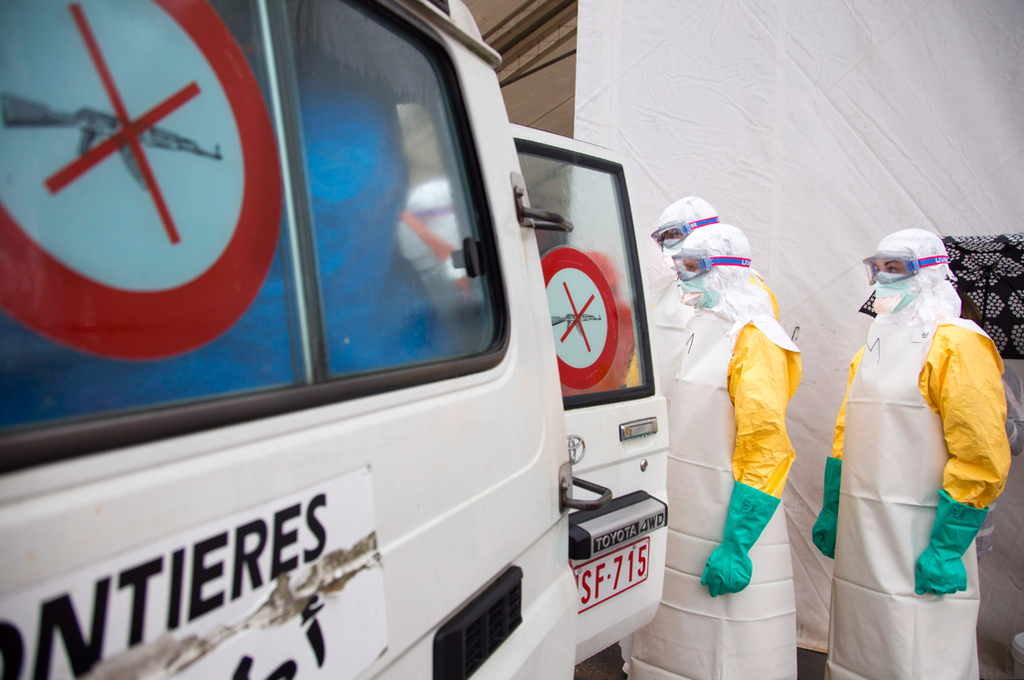
The National Institute of Allergy and Infectious Diseases (NIAID) will begin phase one human testing of an Ebola vaccine developed by NIAID and pharmaceutical company GlaxoSmithKline in Bethesda, Md., next week.
These trials will accelerate the testing of Ebola vaccines that NIAID has been conducting since 2003. It will mark the first time the vaccine has been given to human patients. Several trials of primate testing of the vaccine went "extremely well" said NIAID Director Anthony S. Fauci, M.D., on a conference call Wednesday.
The trial will consist of 20 healthy adult volunteers, ages 18–50. During the test, the vaccine delivers one part of Ebola's genetic material to human cells. But the virus does not replicate; rather, a protein prompts an immune response in the individual, according to the NIAID.
"It is important to know that the Ebola genetic material contained in the investigational vaccine cannot cause a vaccinated individual to become infected with Ebola," Dr. Fauci said.
The first three volunteers will start the testing next week.

Dr. Fauci stressed that the phase one trial is just the starting point for testing safety and immune response. "We're talking about a vaccine that it's the first time going into humans. We don't know if it's safe."
Asked if the results would be timely enough to help the Ebola outbreak in West Africa, Dr. Fauci said, "Obviously, that's a question we can't answer because we're just starting the trial now."
To date, at least 1,552 people have died of Ebola in West Africa, according to the World Health Organization (WHO). WHO warns that the number of Ebola cases could eventually exceed 20,000 — over six times as many as those currently known to doctors.
The NIAID vaccine is not being developed to use in people that are already infected with Ebola. Dr. Fauci said it is "purely, in our mind, a preventative vaccine." He believes if it works, the vaccine would primarily be given to those entering a risk situation.
The NIAID draws a clear distinction between the vaccine and the Ebola drug, ZMAPP, that was given to two American aid workers infected with Ebola in West Africa. "That was the first time [ZMAPP] went into humans. That wasn't a phase one. That was a compassionate use," Dr. Fauci said.
The NIAID is hopeful that they will have data to share from the trial by the end of the 2014 calendar year.
In regard to health workers planning to travel to West Africa who might want to participate in testing the vaccine, Dr. Fauci said the trial is "open to them. [We're] not specifically targeting them."
The National Institute of Health has also partnered with medical groups in the United Kingdom to test the vaccine on candidates in the U.K. and in the West African countries of Gambia and Mali after approval from the authorities. The NIH is also discussing a phase one trial in Nigeria, one of the countries hit by the recent Ebola outbreak. Regarding vaccine testing in other West African countries infected with Ebola, Dr. Fauci said the "infrastructure in those countries would not allow for safety."

